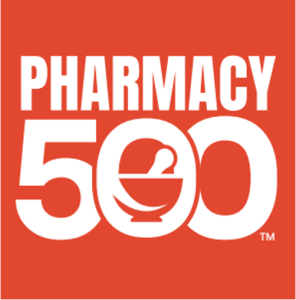At Long Last, FDA Expands Access for Compounding Pharmacies
As medication shortages grow, the FDA issues guidance expanding the role of compounding pharmacies. This creates new opportunities for 503a compounding pharmacies with hospitals as their customers. How can pharmacies get ready to attract new hospital business?
By Stephanie Baumhover, PharmD, BCPS
The COVID-19 pandemic has rattled the supply chains for ventilators, supplies, and medications. Medication shortages were a daily reality before the pandemic. They are even more challenging now. The uncertainty of COVID treatments has led to a reactionary approach to medication purchasing. Once a medication is publicized as being potentially effective, its supplies almost immediately become limited. This is in addition to widespread shortages of supportive medications for critically ill patients. Some examples of treatments that went on shortage within days of media coverage are vitamins, hydroxychloroquine, emergency use remdesivir and now with dexamethasone. The sheer volume of infected patients combined with promising study results has made dexamethasone a vital tool in the pandemic, and now extremely difficult to obtain.
FDA Expands Access for Pharmacies Compounding Drugs in Shortage
Compounding pharmacies traditionally have not been able to help ease shortage situations for hospital supply chains due to the requirement for prescription only compounding. Recently the FDA has re-visited that stance and paved the way for 503a compounding pharmacies to begin compounding medications on shortage for hospital use. Dexamethasone has recently been added to the list of medications that can be compounded outside of a manufacturer or a 503b outsourcing facility for hospital use. It is highly possible as COVID clinical trials continue around the world, new treatments may become clinical standards of practice and subsequent shortages will occur. Compounding pharmacies now have a critical role in keeping supply chains running smoothly for hospitals caring for COVID patients.
In April, the FDA issued a temporary guidance document for compounding pharmacies in light of the COVID-19 pandemic. This document addressed compounding medications for hospitals by 503a compounding pharmacies who were not FDA approved as 503b outsourcing facilities. This is a rare moment of FDA flexibility for 503a compounding pharmacies. One moment that we have the opportunity to showcase quality and experience to relieve drug shortages and help the global medical crisis.
This guidance document outlines the additional steps a 503a compounding pharmacy must follow in order to be compliant with this change in procedure. Included in this are up to date beyond-use-dates (BUD). The list has grown to 16 medications, all used as supportive agents for critically ill COVID patients. The most up to date listing can be found here.
503A Compounding Pharmacy’s New Customer: Hospitals
Hospitals are now contacting compounding pharmacies asking if they can assist with production and packaging of these agents. Large healthcare systems may have several questions on process, quality assurance, uniformity and sterility testing for compounding pharmacies they are considering using for their supply. Both the compounding pharmacy and hospital pharmacy have never before been in this situation. Critical assessment of procedures and uniformity of product supply will be vital to reassure any hospital director pf pharmacy that they are getting a product with equal quality as a commercial automated produced product. Up until now, hospitals have not been able to utilize 503a compounding pharmacies for commercially available medications. This brings new business possibilities, but also a tremendous responsibility for the highest level of quality assurance, clean and reproducible sterile technique, automated production and advanced record keeping.
How to Prepare and Attract New Business from Hospitals
Within this new guidance pharmacies must request approval from their individual Board of Pharmacy. This is an additional safety requirement from the FDA to further ensure pharmacies who have had multiple citations may be prevented from supplying hospitals. Those compounding pharmacies who have clean pharmacy inspections, reliable and trained pharmacy staff, high quality assurance procedures and extensive record keeping may be perfect candidates for expansion into this newly created business opportunity. This may require
• Immediate assessment of current procedures
•Ability to market and respond to inquiries from hospitals
•Optimize staff roles to create capacity
•Assess prescription throughput and turn-around time
•Determine capacity for large volume orders from hospitals
•Quality Assurance Review and Preparation
•Guaranteeing uniformity with your dosage forms
•Gap analysis to minimize risk
•Batch testing
•Record keeping
•Automation (such as the AutoCompounder from Vitae Industries)
When marketing your product as a comparator to a commercially prepared product, minimization of variability and ensuring product standardization are keys to success. Automating compounding may increase your ability to attract new business. It may also free up vital staff for additional sterile compounding during this period of expanded compounding opportunities. Are you ready to meet this new business and public health opportunity?
—
Stephanie Baumhover, PharmD, BCPS is a board-certified clinical pharmacist and freelance medical writer. She has professional experience working in regulatory compliance, pediatrics, oncology, internal medicine, and infectious disease. Stephanie has over 20 years medical experience and over 10 years as a medical educator to health care professionals and patients.







